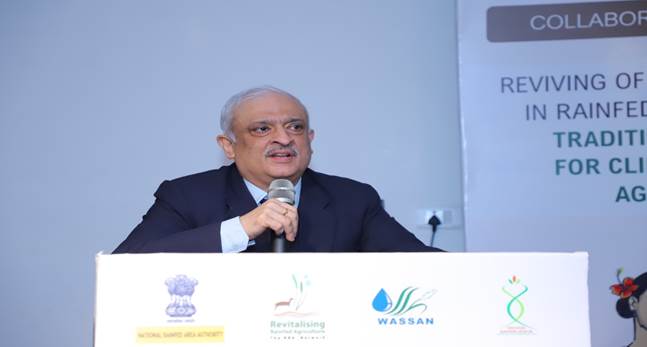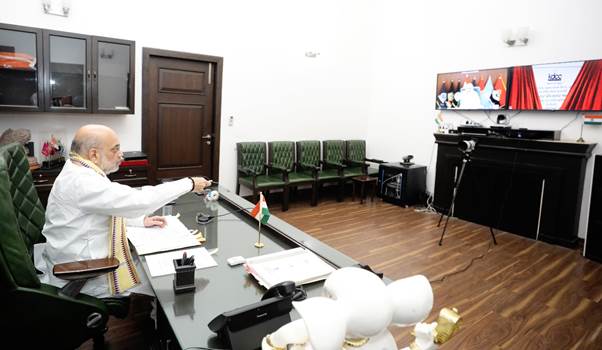In a major push to revitalize traditional agricultural practices, the Union Government has reiterated its commitment to promoting traditional crop varieties through various schemes. Addressing a gathering at the Multi-Stakeholder Convention on “Reviving Agro-Biodiversity in Rainfed Areas through Traditional Varieties for Climate-Resilient Agriculture,” held in New Delhi, Dr. Devesh Chaturvedi, Union Secretary of the Ministry of Agriculture & Farmers Welfare, highlighted the critical importance of traditional crop varieties in achieving climate resilience.
 Dr. Chaturvedi underscored the unique traits of traditional varieties, such as superior taste, aroma, nutritional richness, and adaptability to diverse climatic conditions. He emphasized the need to cultivate these crops in clusters and market them effectively, as they can fetch premium prices due to their distinct qualities. Government initiatives like the National Mission on Natural Farming (NMNF), Farmers’ Producer Organizations (FPOs), and National Food Security Mission (NFSM) are being leveraged to support the cultivation and marketing of these varieties.
Dr. Chaturvedi underscored the unique traits of traditional varieties, such as superior taste, aroma, nutritional richness, and adaptability to diverse climatic conditions. He emphasized the need to cultivate these crops in clusters and market them effectively, as they can fetch premium prices due to their distinct qualities. Government initiatives like the National Mission on Natural Farming (NMNF), Farmers’ Producer Organizations (FPOs), and National Food Security Mission (NFSM) are being leveraged to support the cultivation and marketing of these varieties.
Focus on Rainfed Areas
Dr. Faiz Ahmed Kidwai, representing the National Rainfed Areas Authority (NRAA), detailed efforts to address the vulnerabilities of rainfed areas, which constitute about 50% of India’s agricultural land and support 61% of its farmers. He emphasized the importance of increasing investments in these areas, as they currently receive insufficient funding relative to their needs.
Experts like Dr. K.S. Varaprasad, Former Director of ICAR-IIOR, and Dr. Gyanendra Singh, Director of ICAR-NBPGR, discussed the coexistence of traditional and modern crop varieties to benefit farmers. They stressed the importance of in-situ conservation and stronger policy support for preserving traditional seeds, particularly as informal seed systems—comprising farmer-to-farmer exchanges—currently meet 60% of seed requirements in rainfed areas.
Farmers Lead the Way
Champion farmers, seed saviors, and state representatives from 10 states, including Tamil Nadu and Odisha, showcased indigenous seeds and shared their experiences of conserving traditional varieties. These success stories highlighted the role of community-driven seed systems in sustaining agro-biodiversity.
The workshop also explored the formalization of community-managed seed systems, the need for government support in infrastructure and Minimum Support Price (MSP), and greater involvement of grassroots organizations in seed conservation efforts.
Charting the Path Forward
The convention served as a platform to discuss actionable steps for reviving and mainstreaming traditional varieties. Examples from states like Tamil Nadu, West Bengal, and Odisha showcased successful initiatives in conserving agro-biodiversity. Recommendations from the workshop will be submitted to the Ministry of Agriculture and Farmers Welfare, focusing on linking traditional varieties with markets and integrating them into natural farming schemes.
With its collaborative approach, the NRAA, alongside partners like the Revitalising Rainfed Agriculture Network (RRAN) and Watershed Support Services & Activities Network (WASSAN), aims to continue fostering dialogue and action on this crucial agenda.
By aligning the promotion of traditional varieties with strategies like those adopted for millets, the government is taking a decisive step toward building a resilient agricultural ecosystem in India.




